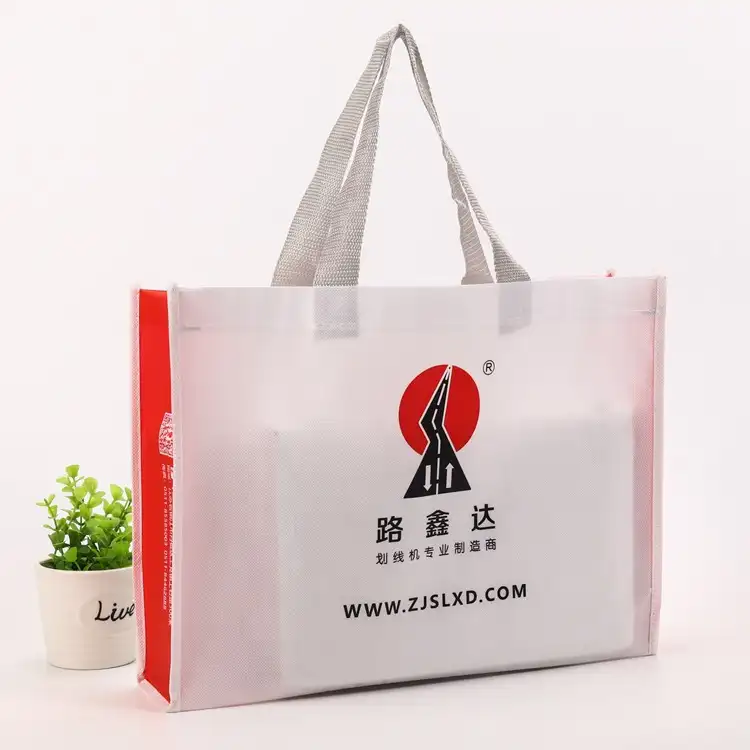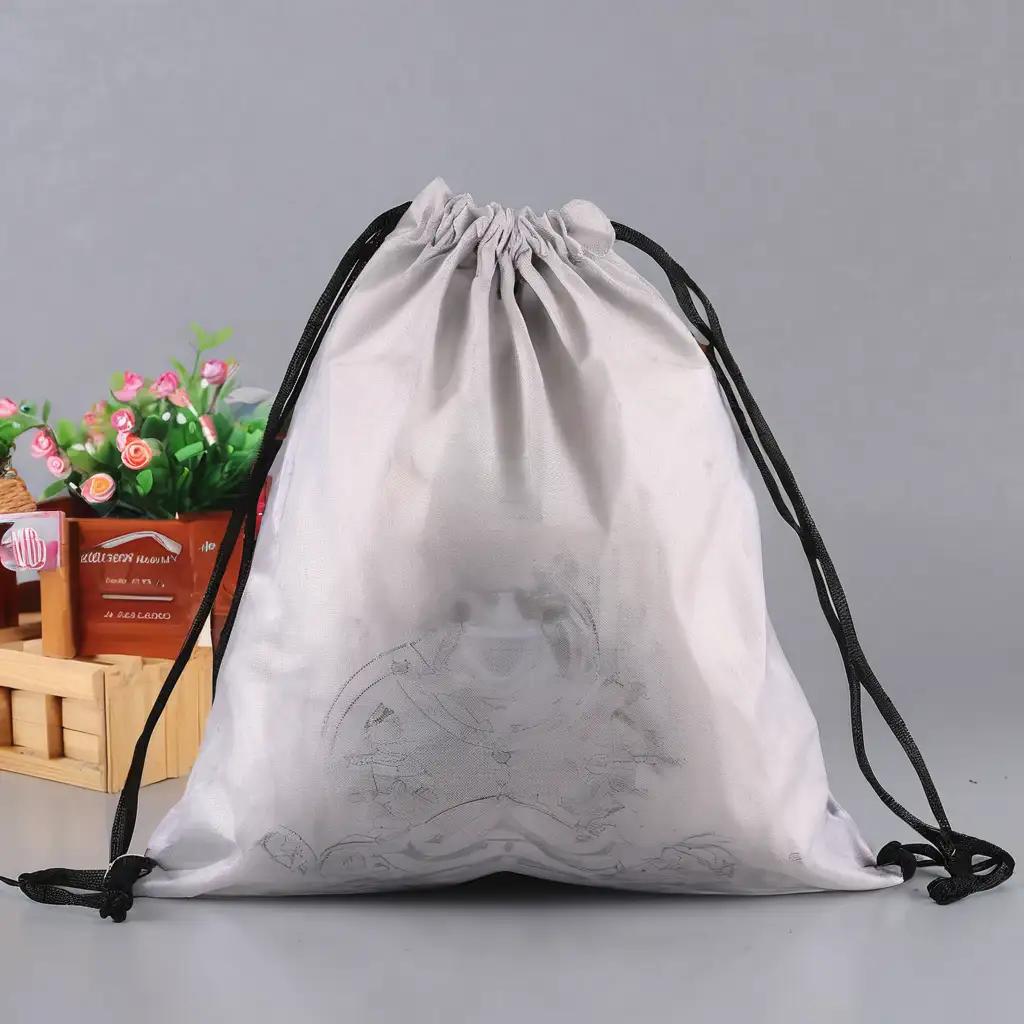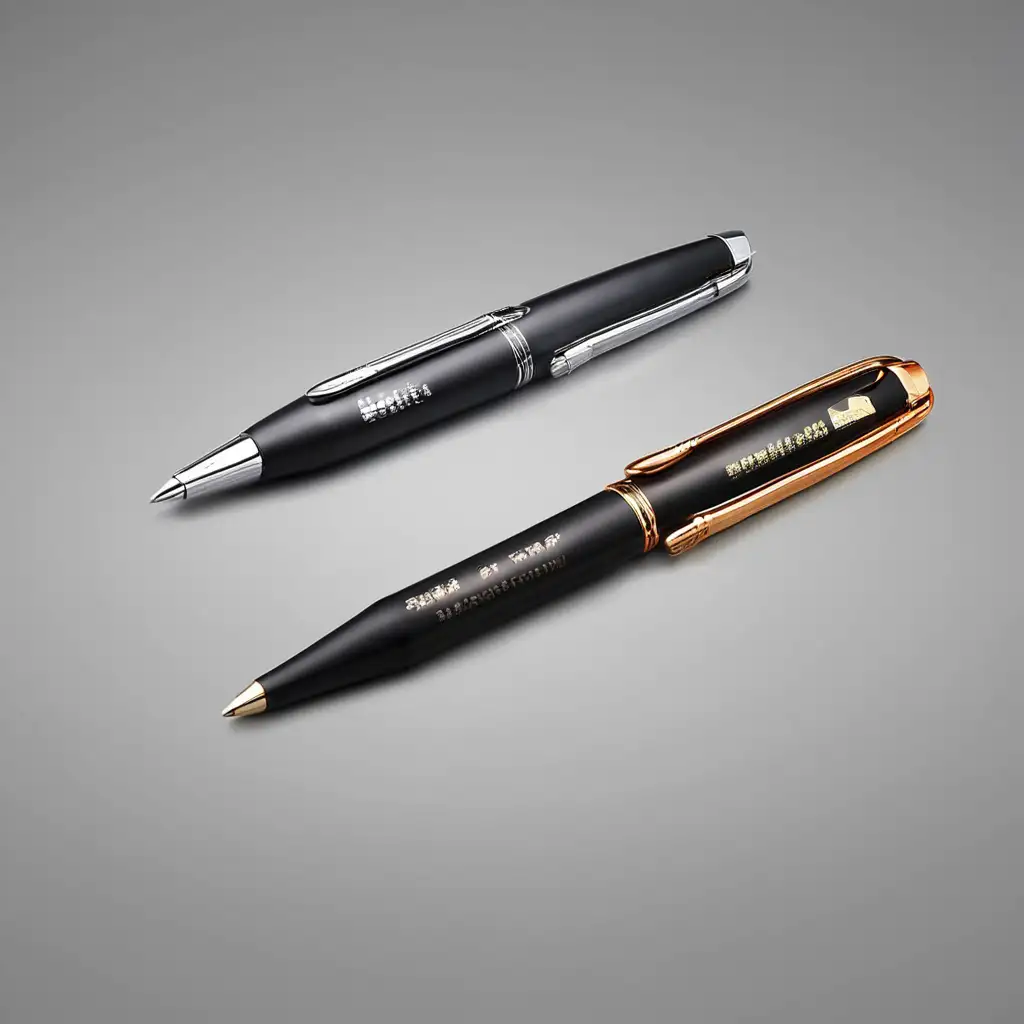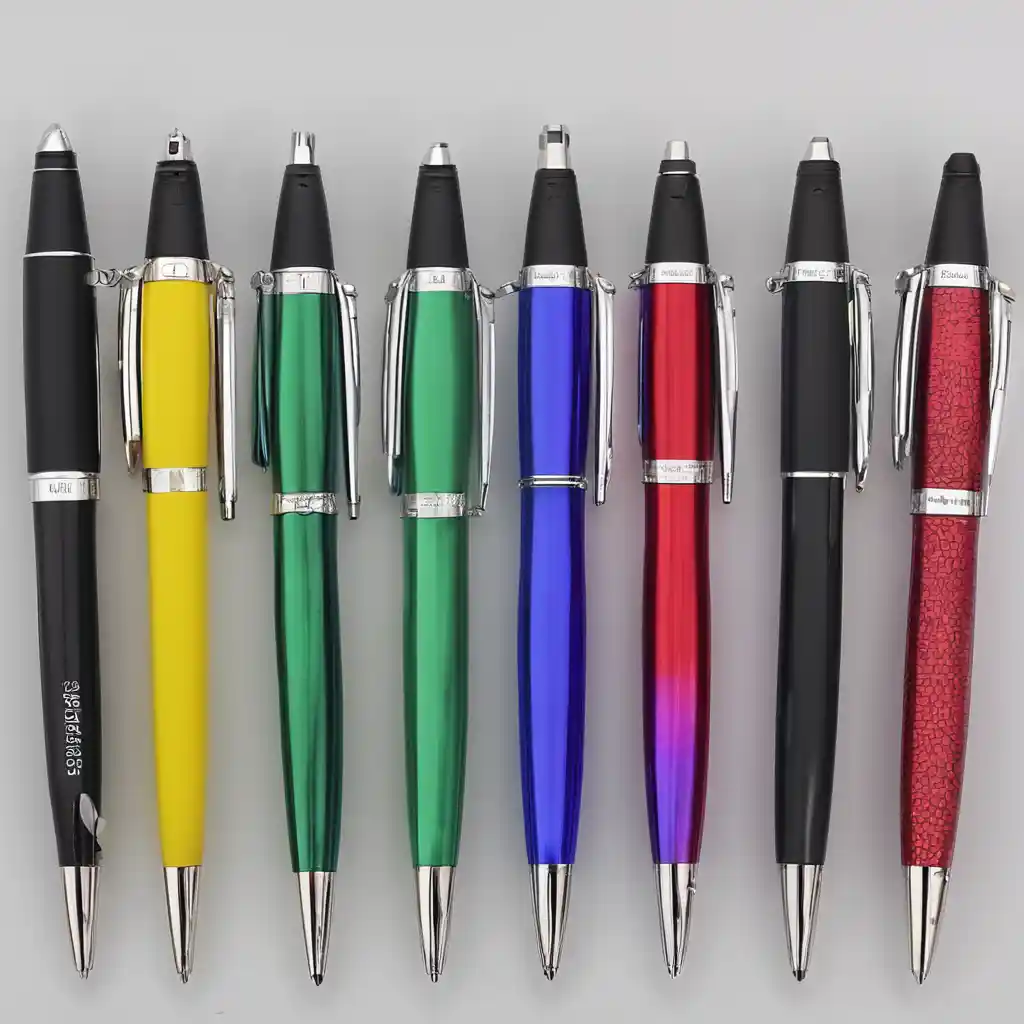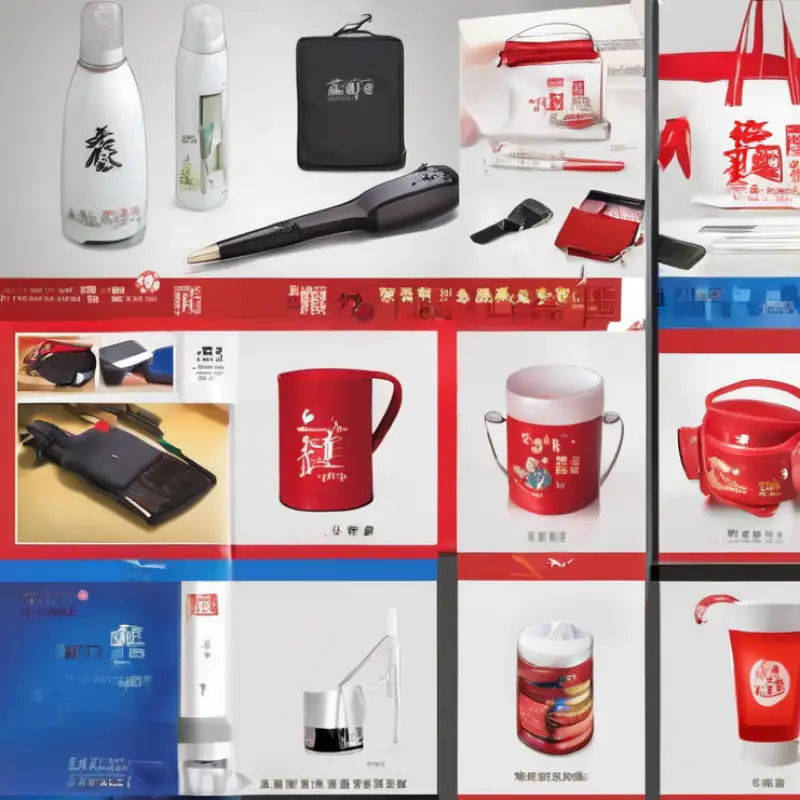In an era where environmental consciousness is paramount, every small choice we make in our daily lives contributes to the well-being of our planet. One such choice that holds significant ecological impact is the decision to opt for non-woven bags over traditional alternatives. In this article, we explore the importance of choosing non-woven bags and the positive difference it can make for our environment.
The Environmental Toll of Traditional Bags
The use of traditional plastic bags, though convenient, comes with a substantial environmental toll that cannot be overlooked. These single-use bags have, for a long time, been emblematic of convenience, but their widespread use has led to severe and undeniable environmental repercussions.
One of the most evident issues associated with traditional plastic bags is pollution. These bags, often disposed of improperly, find their way into various environments, including water bodies, streets, and natural landscapes. Once in these locations, they can take years to break down, releasing harmful chemicals and microplastics into the surroundings. This pollution not only degrades the aesthetics of our surroundings but also poses a threat to the health of ecosystems.
The impact on wildlife is a poignant consequence of plastic bag pollution. Marine life, in particular, is highly susceptible to the dangers posed by discarded plastic bags. Marine animals may mistake bags for food, leading to ingestion and, subsequently, injury or death. Additionally, terrestrial animals can get entangled in plastic bags, resulting in injuries, restricted movement, and, in some cases, fatalities. The endangerment of wildlife due to plastic bags is a clear sign of the need for more sustainable alternatives.
Plastic bags, when not disposed of properly, can disrupt ecosystems in various ways. They can clog waterways, leading to drainage issues and floods. The presence of plastic bags in soil can affect plant growth and nutrient absorption, impacting the entire ecosystem. The accumulation of plastic waste in natural habitats disrupts the delicate balance of ecosystems, threatening the biodiversity that relies on these environments.
Beyond the immediate environmental impacts, the production and disposal of traditional plastic bags contribute significantly to the global carbon footprint. The manufacturing process of plastic bags involves the extraction and processing of fossil fuels, leading to the emission of greenhouse gases. Moreover, the disposal of these bags in landfills results in slow decomposition, releasing methane—a potent greenhouse gas. The cumulative effect of the entire life cycle of plastic bags exacerbates the ongoing environmental crisis, including climate change.
The environmental toll of traditional plastic bags is a multifaceted challenge that spans pollution, wildlife endangerment, ecosystem disruption, and a substantial carbon footprint. Recognizing the gravity of these issues is crucial for fostering a transition toward more sustainable alternatives. The detrimental impact of traditional bags on our planet underscores the importance of adopting eco-friendly solutions, such as non-woven bags, to mitigate the environmental consequences and contribute to a healthier, more sustainable future.
The Rise of Non-Woven Bags
The emergence of non-woven bags represents a notable response to the environmental challenges posed by traditional plastic bags. These eco-friendly alternatives have gained prominence as a sustainable choice, offering a range of benefits that address the shortcomings of their traditional counterparts.
Non-woven bags are crafted from fabric-like materials, often using a process that does not involve weaving or knitting. The result is a durable and versatile bag that possesses qualities ideal for various purposes. The composition of non-woven bags typically includes synthetic or natural fibers bonded together, creating a sturdy and resilient material.
One of the key features that sets non-woven bags apart is their durability. Unlike traditional plastic bags that are prone to tearing and damage, non-woven bags can withstand heavier loads and prolonged use. This durability not only makes them reliable for multiple trips but also contributes to their reusability. Non-woven bags can be used repeatedly, reducing the need for single-use alternatives and minimizing waste.
Non-woven bags are designed with environmental considerations in mind. They are recyclable, allowing for the material to be repurposed and reducing the demand for new resources. The recyclability of non-woven bags contributes to a circular economy, where materials are reused and recycled rather than disposed of in landfills. By choosing non-woven bags, individuals actively participate in minimizing their environmental impact.
While the primary motivation for choosing non-woven bags may be environmental consciousness, these bags also offer practical benefits for everyday use. Their durability ensures that they can handle the demands of daily life, from grocery shopping to carrying personal items. Non-woven bags often come in various sizes and styles, catering to different needs and preferences.
Choosing non-woven bags signifies a conscious decision to embrace a sustainable solution. It represents a departure from the negative environmental consequences associated with traditional plastic bags. By opting for non-woven alternatives, individuals contribute to the reduction of plastic pollution, the conservation of resources, and the promotion of a more sustainable and eco-friendly lifestyle.
The rise of non-woven bags is a positive and strategic response to the environmental challenges posed by traditional bags. Their composition, durability, reusability, recyclability, and practicality make them a compelling choice for individuals seeking to make a positive impact on the planet. Non-woven bags stand as a symbol of sustainable living, offering a viable alternative that aligns with the growing global commitment to environmental conservation.
Key Advantages of Non-Woven Bags
Reusable Nature
The reusable nature of non-woven bags stands as a key attribute that sets them apart from single-use plastic bags. This characteristic not only contributes to the reduction of waste but also plays a crucial role in mitigating the environmental impact associated with disposable alternatives.
Non-woven bags are designed to be durable, capable of withstanding the wear and tear of repeated use. Unlike single-use plastic bags that are often prone to tearing, non-woven bags maintain their structural integrity over multiple trips to the store or various daily activities. The robust construction ensures that they can be used for an extended period, making them a reliable choice for individuals seeking a sustainable and long-lasting solution.
The ability to reuse non-woven bags translates into a decreased demand for new bags. In contrast to the continuous consumption of single-use plastic bags, non-woven bags offer a practical alternative that can be utilized for numerous shopping trips or other purposes. This reduction in demand for new bags directly contributes to the conservation of resources and the prevention of additional waste generation.
The environmental impact of reusing non-woven bags is significant. With each reuse, there is a proportional decrease in the number of new bags required, leading to less production and disposal of plastic materials. This, in turn, helps mitigate the negative consequences associated with the life cycle of single-use plastic bags, including resource depletion, energy consumption, and pollution.
The reusable nature of non-woven bags also brings economic benefits to consumers. While there may be an initial cost associated with acquiring non-woven bags, the long-term savings become evident as users continue to reuse them. This economic advantage, coupled with the positive environmental impact, makes non-woven bags a sensible and cost-effective choice for individuals looking to align their lifestyle with sustainability.
By choosing non-woven bags and actively engaging in their reuse, individuals contribute to the promotion of sustainable practices. This shift away from the throwaway culture of single-use items reflects a commitment to responsible consumption and a recognition of the role that individuals play in fostering a more sustainable and environmentally friendly society.
The reusable nature of non-woven bags is a pivotal aspect of their appeal as an eco-friendly alternative to single-use plastic bags. The durability and extended usability of non-woven bags not only offer practical advantages for users but also make a positive impact on the environment by reducing the demand for new bags and decreasing overall waste generation. Choosing reusable non-woven bags represents a conscious and impactful step towards a more sustainable and responsible lifestyle.
Durability
The durability of non-woven bags is a defining feature that positions them as a robust and reliable choice for a wide range of purposes. Whether it's handling heavy shopping loads or daily errands, the sturdy construction of non-woven bags ensures their longevity and practicality.
Non-woven bags derive their durability from a unique material composition. These bags are typically made from synthetic or natural fibers that are bonded together. The bonding process creates a strong and resilient fabric-like material that can withstand substantial weight and usage. This material composition contributes to the overall durability of non-woven bags, making them well-suited for heavy-duty tasks.
The construction of non-woven bags is designed to be sturdy and reliable. The seams and handles are reinforced to bear the stress of carrying heavy loads without compromising the integrity of the bag. This robust construction distinguishes non-woven bags from flimsier alternatives and ensures that they maintain their shape and functionality over an extended period.
Non-woven bags are capable of carrying heavy loads, making them an ideal choice for various applications. Whether it's groceries, books, or other items, individuals can rely on the strength of non-woven bags to handle substantial weights. This capacity for heavy loads enhances the versatility of non-woven bags, allowing them to be used in diverse settings where durability and resilience are essential.
The durability of non-woven bags contributes to their longevity and reusability. Unlike disposable plastic bags that may tear or wear out after a single use, non-woven bags can endure multiple rounds of use. This extended lifespan not only makes them a cost-effective choice but also aligns with sustainable practices by reducing the need for constant replacements.
The sturdiness of non-woven bags makes them practical for daily use. Individuals can confidently use these bags for a variety of purposes, including shopping, commuting, or carrying personal belongings. The reliable nature of non-woven bags adds a level of convenience to everyday activities, making them a go-to option for those seeking both durability and functionality.
The durability of non-woven bags is a key attribute that enhances their utility and value. The combination of robust material composition, sturdy construction, and the capacity to carry heavy loads makes non-woven bags a reliable choice for individuals looking for long-lasting and practical solutions. Whether used for shopping or daily errands, the durability of non-woven bags contributes to their overall appeal as a sustainable and dependable alternative to less resilient options.
Recyclability
The recyclability of non-woven bags is a significant aspect of their environmental appeal, offering a sustainable solution that aligns with efforts to reduce waste in landfills and promote a circular economy.
Non-woven bags are typically composed of synthetic or natural fibers that are bonded together to create a durable fabric-like material. The recyclability of these bags stems from the ability to break down and repurpose these materials. The recycling process involves collecting used non-woven bags, separating them from contaminants, and then processing the material to create new products or materials.
Choosing recyclable non-woven bags contributes to the reduction of waste in landfills. Unlike single-use plastic bags that may persist in landfills for extended periods, recyclable non-woven bags can be diverted from the waste stream. By encouraging the recycling of these bags, individuals actively participate in minimizing the environmental impact associated with conventional waste disposal practices.
Recycling non-woven bags is a process that promotes energy and resource conservation. Rather than relying on the extraction of new raw materials, recycling allows for the reuse of existing materials, reducing the demand for additional resources. This aspect of the recycling process aligns with the principles of a circular economy, where materials are recycled and reused in a continuous loop, minimizing environmental degradation.
The recyclability of non-woven bags plays a crucial role in fostering a circular economy. In a circular economy model, materials are continually recycled and reintegrated into the production cycle, reducing the need for the constant production of new materials. By participating in the recycling of non-woven bags, individuals contribute to the creation of a sustainable and closed-loop system, where waste is minimized, and resources are conserved.
Encouraging the recyclability of non-woven bags also underscores the importance of consumer awareness and responsibility. By making informed choices and actively participating in recycling initiatives, individuals become integral stakeholders in the broader effort to address environmental challenges. The recyclability of non-woven bags empowers consumers to make choices that have a positive impact on the environment.
The recyclability of non-woven bags is a key factor in their role as an environmentally friendly alternative. By choosing recyclable non-woven bags, individuals contribute to the reduction of waste in landfills, promote energy and resource conservation, and support the transition towards a circular economy. This emphasis on recyclability aligns with broader sustainability goals and encourages responsible consumer behavior in the pursuit of a greener and more environmentally conscious future.
Customization
The customization feature of non-woven bags not only adds a personal touch but also provides individuals with a platform to express their style in an eco-conscious manner. This creative freedom enhances the appeal of non-woven bags and makes them a unique and versatile choice for various purposes.
Non-woven bags serve as a blank canvas for creative expression. Their smooth and fabric-like surface provides an ideal space for a wide range of designs, from intricate patterns to bold graphics. This blank canvas allows individuals to unleash their creativity and transform a simple bag into a personalized and unique accessory.
The customization of non-woven bags is facilitated by various printing techniques and options. Common methods include screen printing, heat transfer, and digital printing, each offering the ability to reproduce detailed and vibrant designs. This versatility enables individuals to choose the printing technique that best suits their design preferences and ensures the accurate representation of their chosen artwork.
For businesses and organizations, the customization of non-woven bags presents an opportunity for brand promotion and marketing. Customized bags with company logos, slogans, or specific messaging serve as effective promotional tools. The visibility of branded non-woven bags in public spaces enhances brand recognition and communicates a commitment to eco-friendly practices.
Individuals can use customized non-woven bags as a means of expressing their personal style. Whether it's showcasing favorite colors, quotes, or artistic designs, the ability to personalize a non-woven bag adds a touch of uniqueness to one's daily accessories. This personalization fosters a sense of ownership and connection to the chosen design.
Customized non-woven bags become more than just functional items; they become symbols of eco-conscious living. Individuals who choose to personalize their bags with environmentally themed designs or messages contribute to the promotion of sustainable practices. Customization serves as a visual representation of the individual's commitment to making environmentally friendly choices.
Customized non-woven bags are versatile and can be used for a variety of purposes. Whether it's a promotional giveaway, a personalized gift, or a statement accessory, the adaptability of these bags allows individuals to tailor their use based on the occasion and desired impact.
The customization feature of non-woven bags transforms them from practical items into personalized statements. Whether used for personal expression, brand promotion, or as a means of promoting eco-conscious living, customized non-woven bags offer a unique blend of functionality and individuality. This versatility, coupled with the creative possibilities they present, positions customized non-woven bags as a compelling choice for those seeking a personalized and environmentally friendly accessory.
The Positive Impact on the Planet
By choosing non-woven bags, individuals actively participate in the movement towards sustainable living. The collective impact of such choices is profound — it reduces the use of non-biodegradable materials, minimizes pollution, and supports the overall health of our ecosystems.
Conclusion
Making a difference for the planet starts with the choices we make every day. Opting for non-woven bags is a simple yet powerful step towards a more sustainable future. By understanding the environmental toll of traditional bags and embracing eco-friendly alternatives, we can contribute to a healthier planet for generations to come. Choose non-woven bags — because every small change adds up to a significant impact on our shared home, Earth.
